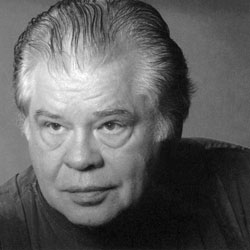When they turned off the lights, I felt like laughing. Things renewed their labors in the dark, at the point where they had been stopped; in a face, the eyes lowered to the nasal shells and took an inventory of certain missing optical powers, retrieving them one by one; a naval scale imperiously summoned the scales of a fish; three parallel raindrops halted at the height of a lintel, awaiting another drop that doesn’t know why it has been delayed; the policeman on the corner blew his nose noisily, emphasizing in particular his left nostril; the highest and the lowest steps of a spiral staircase began to make signs to each other that alluded to the last passerby to climb them. Things, in the dark, renewed their labors, animated by an uninhibited happiness, conducting themselves like people at a great ceremonial banquet, where the lights went out and all remained in the dark.
When they turned off the light, a better distribution of boundaries and frames was carried out around the world. Each rhythm was its own music; each needle of a scale moved as little as a destiny could move, that is to say, until nearly acquiring an absolute presence. In general, a delightful game was created between things, one of liberation and justice. I watched them and grew content, since in myself as well the grace of the numeral dark curvetted.
I don’t know who let there be light again. The world began to crouch once more in its shabby pelts: the yellow one of Sunday, the ashen one of Monday, the humid one of Tuesday, the judicious one of Wednesday, sharkskin for Thursday, a sad one for Friday, a tattered one for Saturday. Thus the world reappeared, quiet, sleeping, or pretending to sleep. A hair-raising spider with three broken legs emerged from Saturday’s sleeve.
Notes on the Poem
Typically, when the lights go out, it's alarming or at least annoying. In "The Footfalls of a Great Criminal", Clayton Eshleman's translation from the Spanish of César Vallejo's "Ruido de pasos de un gran criminal", the poet/translator gets past the somewhat disconcerting thought that we don't know who is controlling the lights, and makes the experience intriguing and even rather delightful. Although we don't know who "they" are, the fact that the narrator "felt like laughing" when they doused the lights signals that either this isn't a worrisome situation , or at very least, the narrator is of a frame of mind to make the most of the circumstances. And he does, by leading us through a series of unusual observations and theories about what might possibly go on or resume in the dark. That those "things, in the dark" are "animated by an uninhibited happiness" makes it all seem quite enchanting. The narrator's observations are additionally fascinating because they include uncommon words (did you know that "curvetted" describes the graceful leaping of a horse?) and cunning slivers of subtle wordplay and combinations, such as "nasal/naval/spiral" "scale/scale" and "lintel/left nostril". Eshleman's translation seems to have created a "better distribution of boundaries and frames" between words and phrases. There is definitely a "delightful game" going on here. Unfortunately, the enchantment ends abruptly when the light returns. The adjectives tell it all, from "shabby" and "ashen" to "humid", "sad" and "tattered". Drowsy disappointment changes to - well, what exactly? - upon the last image of the poem, both startling and pathetic by turns. The narrator has taken us on an interesting, at times exhilarating and at times unsettling journey in three paragraphs.
